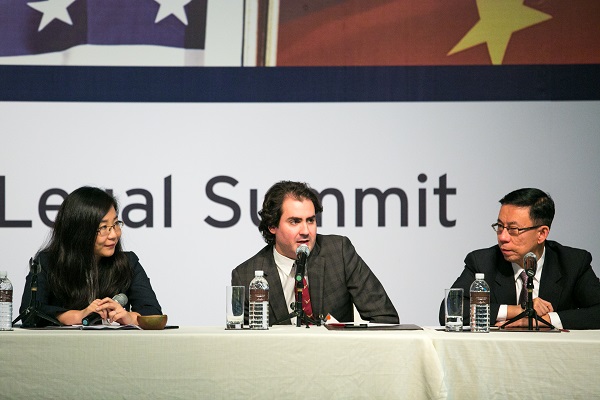Handling disputes, trade secrets as data rules tighten
December 04, 2015 | BY
Katherine JoPractitioners highlight the importance of advance preparation for litigation and arbitration, as well as a careful approach to IP, as data risks grow

Tiana Zhang, Aric Leventhal and Fang Qi at the U.S.-China Legal Summit in Shanghai, Nov. 25 2015




